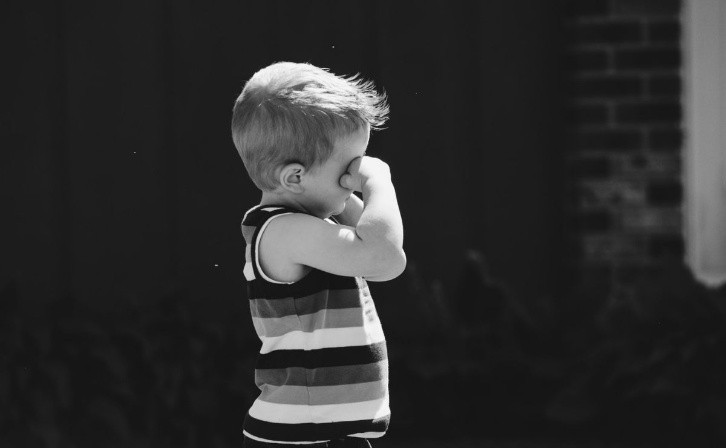
This is the most intelligent, mature, respectful and loving way to react when your child throws a tantrum in front of many people
As calm as a child is, it is impossible that at some point he does not throw a tantrum even if he is surrounded by people. In fact, these tantrums can occur when we least expect it, especially when they are young and their ability to verbalize what they feel is still very reduced.
Although we generally know that all these emotional outbursts are a normal part of their development , parents don’t always know how to react in a positive and respectful way, and they often lose patience.
That’s why you need to know what not to do when your child is throwing a tantrum and people are around them.
Getting angry and blaming the child for everything : Faced with an emotional outbreak that is difficult to contain, it is normal for parents to feel nervous, confused and even angry. You must bear in mind that this tantrum is not the fault of the child, but of emotional mismanagement on the part of the parents.
Children do not cry to annoy or inconvenience, but to express a non-visible need that needs to be attended to, since the child does not know how to communicate with words what he feels due to his immaturity and lack of emotional resources.

Let yourself be influenced by the "what they will say" of others : Sometimes parents make the mistake of wanting to calm down their little one’s tantrum at all costs with the main objective of stopping him from yelling and bothering those around him. That is to say, that "what they will say" is more important than what is really happening.
But if you let yourself be influenced by the environment, by the looks and comments of other people, you will be moving away from your child’s needs and you will disconnect from him, so you will not be able to help him.
Take him away from you so that he "thinks about what he has done" : Sometimes you also fall into the mistake of excluding the child and forcing him to "reflect" on his actions, when, for example, the tantrum has been a consequence of a behavior that the adult considers inappropriate.
Pushing aside a child when he is anxious and angry with the excuse that he should "think about what he has done" is not only ineffective, but it damages the self-esteem and confidence of the little ones.
Pretend that the child reasons and listens : You must bear in mind that when a child is faced with a situation that causes him frustration or stress and that ends up emotionally overflowing, his brain is blocked. Thus, the child begins to experience physical sensations such as rapid heartbeat, sweaty palms, and tense muscles.
That is why no matter how much you make the effort to reason with the little one at that moment, lecture him or give him a talk about what is right or wrong, he will not listen to him. The best thing is that you wait until he is calm so that you can talk calmly.
Labeling or ridiculing him: Saying negative things like "how ugly you look when you cry", "crying is for cowards", "you’re a crybaby", or "I don’t like children who cry", there are many phrases that ridicule crying or the little one cries.
Although sometimes we are not aware of the enormous emotional burden that a tantrum has, the words or labels that you give the child in the face of a tantrum will cause serious damage to his self-esteem and will cause frustration, anxiety, misunderstanding and endless negative feelings that They will affect you in the long and short term.